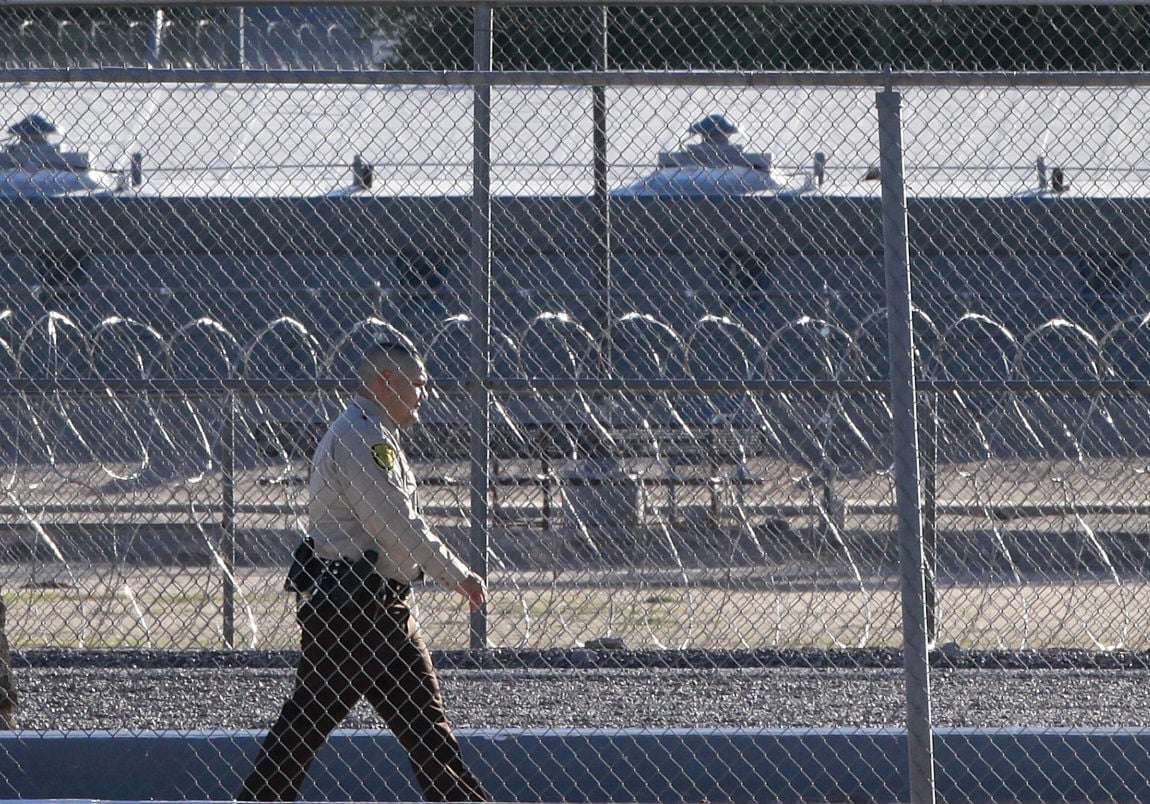PHOENIX — Arizona spent $1.5 million this past fall to buy 1,000 vials of an execution drug.
A heavily redacted document obtained by Capitol Media Services shows the invoice from a not-disclosed source for jars of pentobarbital sodium salt to be shipped to the state Department of Corrections, Rehabilitation and Reentry in “unmarked jars and boxes.”
The seller’s name is blacked out.
State officials have repeatedly declined to identify where they have attempted to purchase supplies of lethal chemicals. And the 9th Circuit Court of Appeals has ruled that Arizonans have no right to know where the state obtains drugs to execute its inmates.
A spokesman for the agency would not comment or answer questions about the source of the drugs, how they were obtained — and whether they were obtained legally.
“ADCRR does not discuss its procurement process for execution drugs or services rendered to carry out these legally imposed sentences,” said Bill Lamoreaux, “Moreover, the information you seek is statutorily confidential and not subject to disclosure.”
The Attorney General’s Office, which has pushed to obtain these drugs for months and is now pursuing execution dates for two inmates, referred all questions to the corrections department.
And an aide to Gov. Doug Ducey declined to respond to the purchase order originally published by The Guardian.
But Dale Baich, an assistant federal public defender who represents several inmates on Arizona’s death row said he was “shocked” at the steps the state has taken to hide the facts related to its efforts to restart executions for the first time since 2014.
“Taxpayer money should not be spent in this matter without complete transparency,” he said in a prepared statement, specifically noting that the state wants the items shipped in “unmarked boxes.”
Beyond that, Baich said it was disturbing that the agency is spending that kind of money given other problems it faces.
That includes an internal staffing report obtained last year by KJZZ which showed a vacancy rate of more than 54% for correctional officers at the Eyeman State Prison in Florence.
“Surely there is a better use for this money than carrying out executions,” Baich wrote.
The refusal of the corrections department to provide details also raises questions about how the drugs were obtained.
Pentobarbital is an otherwise legal drug which can be used for everything from controlling seizures to a pre-anesthetic in the operating room. But manufacturers generally do not want to sell their drugs to be used for executions.
The last time the state tried to get some drugs for execution it didn’t work out so well.
In 2015, Arizona ordered 1,000 vials of sodium thiopental, a muscle relaxant used in the execution process, from a supplier in India. That came after a domestic manufacturer refused to sell it for executions.
That decision to order the drugs came despite warnings from the federal Food and Drug Administration that buying the drug from India-based Harris Pharma would be illegal. That followed a 2012 decision by a federal judge, ruling in a lawsuit brought by inmates, requiring the federal agency to block importation of the drug as unapproved.
It ended up with Customs and Border Protection seizing the drugs at Sky Harbor International Airport. And in 2017 the FDA refused a request by Arizona to release them.





